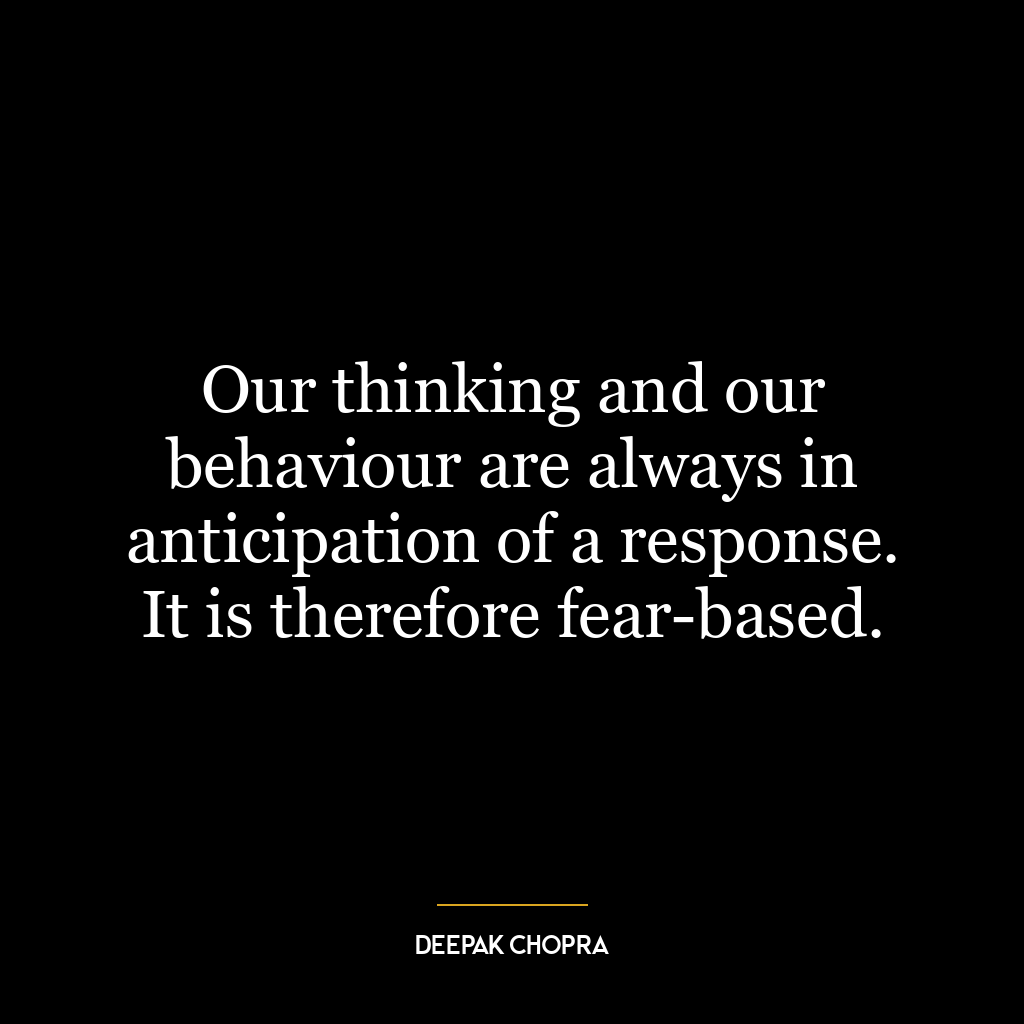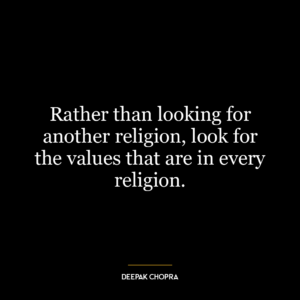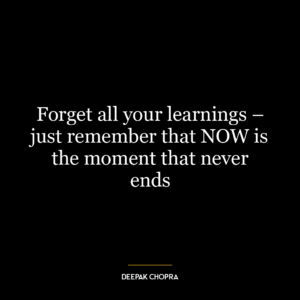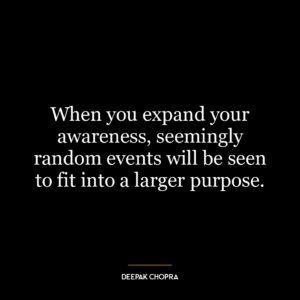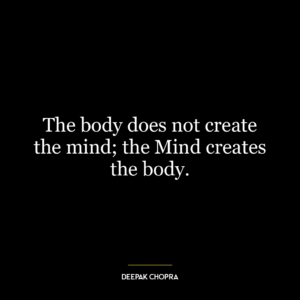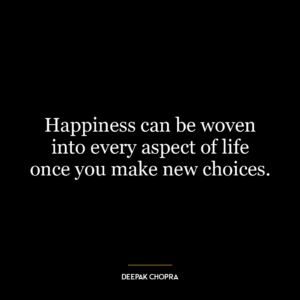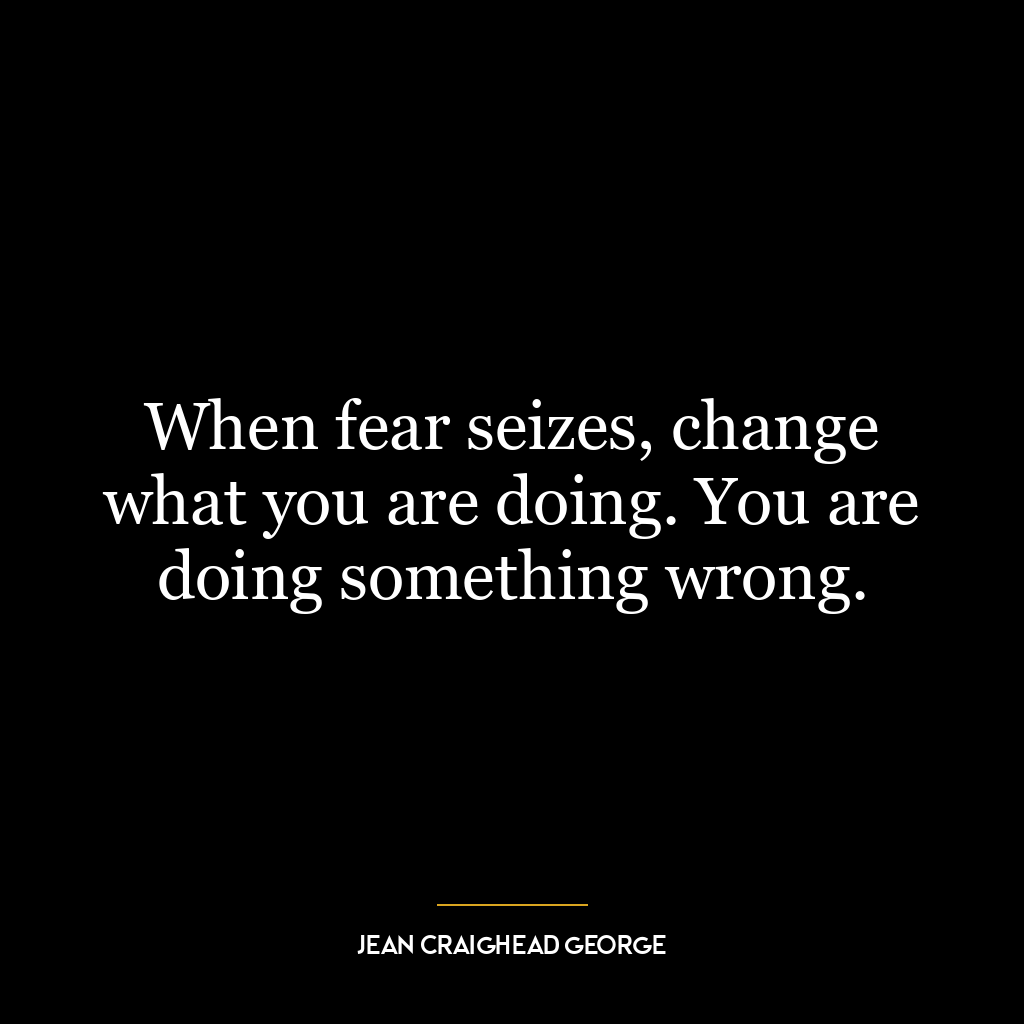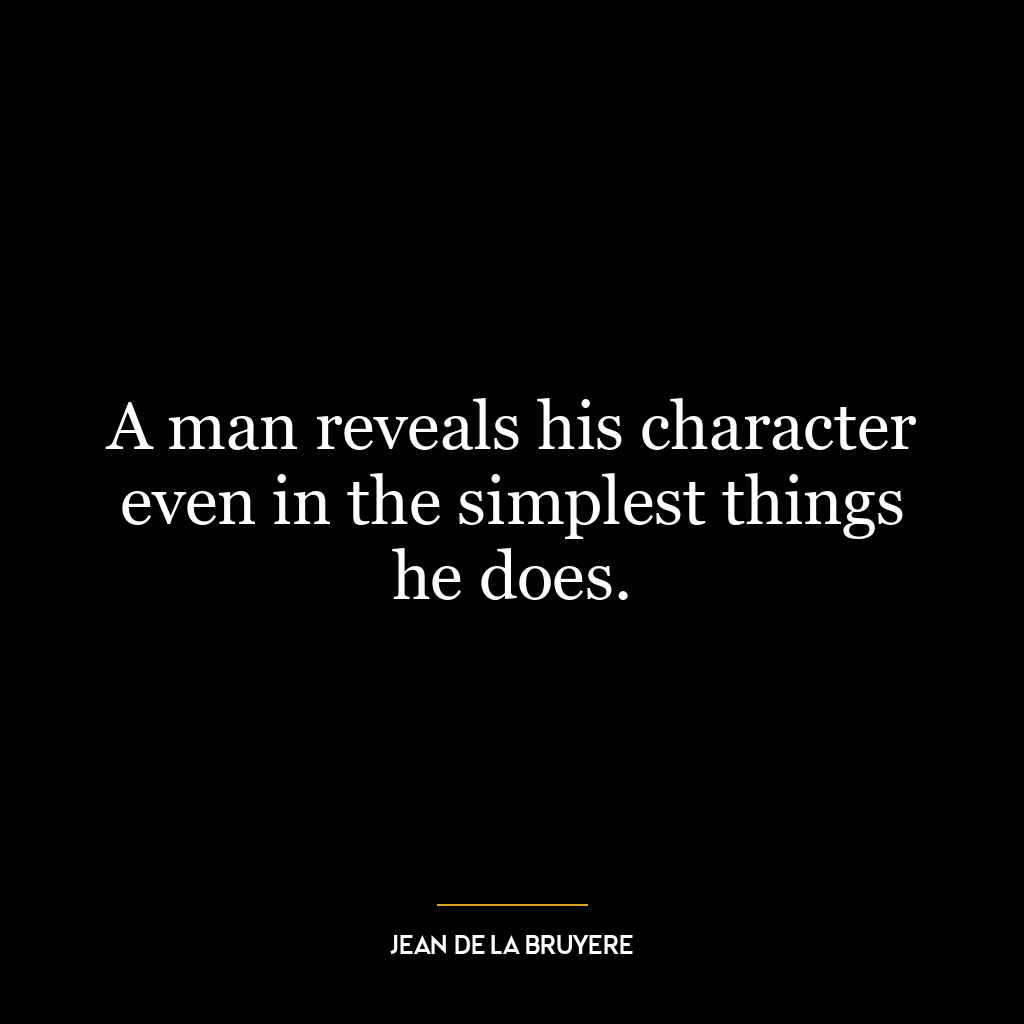This quote suggests that our thoughts and actions are often guided by the anticipation of a reaction or outcome, and that this anticipation is primarily driven by fear. This fear could be of failure, rejection, judgement, or any other negative consequence. Essentially, we are not always acting authentically or thinking freely, but are instead constrained by our predictions of how others will respond.
For instance, you might hold back from expressing your true feelings in a conversation out of fear of how the other person might react. Or you might choose a career path not because it’s something you are passionate about, but because it’s what you think will gain approval or respect from others.
In terms of personal development, understanding this concept can be quite liberating. It means that much of what holds us back is not necessarily reality, but our own projections of what we think will happen. If we can learn to recognize when our actions are being driven by this fear-based anticipation, we can work to overcome it and make choices that are more aligned with our authentic selves.
In today’s world, this idea is particularly relevant given the prevalence of social media and the constant scrutiny that comes with it. Many people shape their online personas based on what they think will get likes or followers, rather than expressing their true selves. Recognizing this fear-based anticipation can help us to use these platforms more authentically and resist the pressure to conform to certain expectations.
Moreover, in a broader societal context, fear-based anticipation can contribute to conformity and discourage innovation. If we are always acting in anticipation of a response, we are less likely to challenge the status quo or take risks. Overcoming this fear-based anticipation is therefore not just important for personal development, but also for societal progress.

